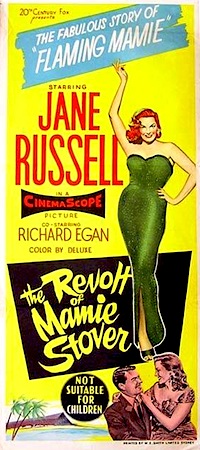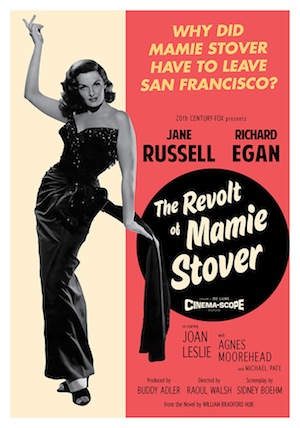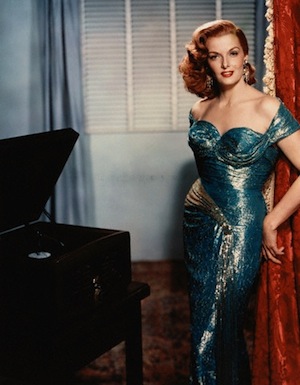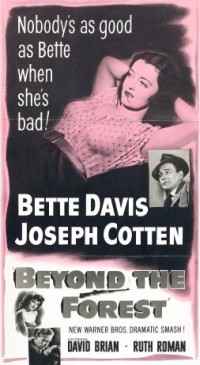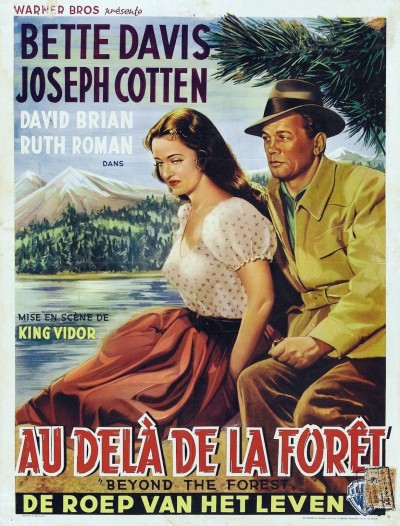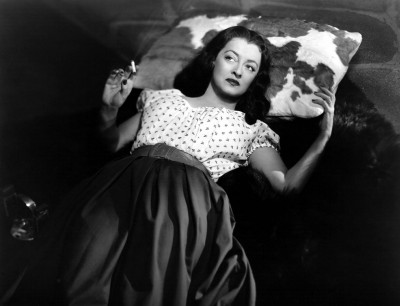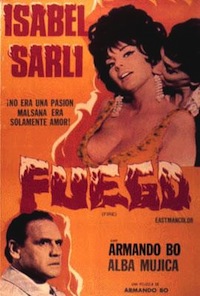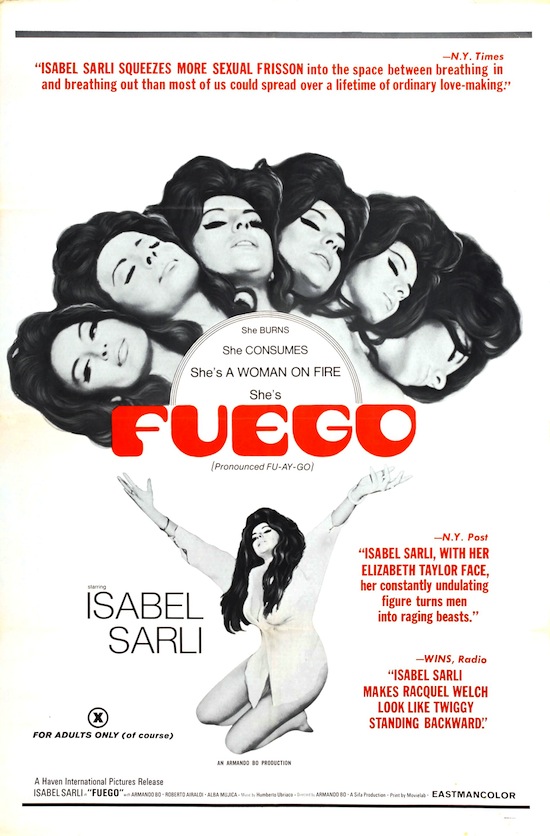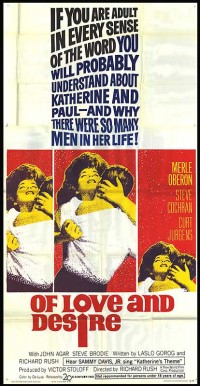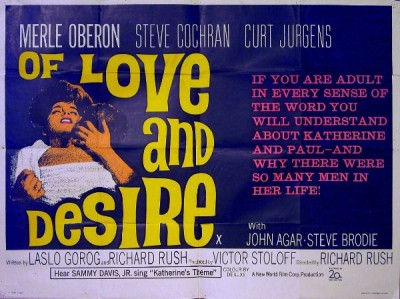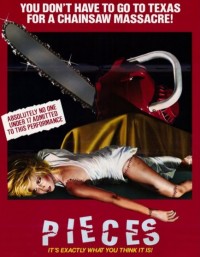 From the sensual world of Harold Robbins comes the story of a woman’s struggle for fame in Hollywood.
From the sensual world of Harold Robbins comes the story of a woman’s struggle for fame in Hollywood.
Movies about the troubled rise to superstardom are a staple in the diet of bad movie aficionados. Power. Fame. Money. Betrayal. We get all this and Pia Zadora too in The Lonely Lady (1983), a delectable trash classic based on the book by Harold Robbins.
What it’s all about: The Lonely Lady starts off with an auditory bang as the cheesy title song (a prerequisite for showbiz potboilers) is warbled over the opening credits. Pia Zadora arrives alone at the Hollywood awards presentation ceremony. The event is actually called “The Awards Presentation Ceremony”. The generic designation only calls attention to the fact that this is definitely not the Academy Awards.
Fade to another awards ceremony years earlier where pigtailed Valley girl Jerilee Randall (Zadora) receives a High School writing award. She tries to make a political statement with her acceptance speech, but is cut off by a shrewish faculty member.
Later that night at a swinging teenage party, Jerilee and a school chum move spastically to a distinctly 80’s rock song. Strangely, they’re not the worst offenders. Everyone at the party boogies as if they’re having a seizure. You would think that there was at least one good dancer at Valley High.
Teen bad boy Ray Liotta tells Pia that her award, “Looks like a penis.” After dunking her in the pool, innocent shenanigans suddenly turn violent when Liotta attacks her, rips open her dress, and rapes her with a garden hose, “I’m gonna give you something special!”
Jerilee’s mother (Bibi Besch) proves she won’t be winning the Mother of the Year anytime soon when she refuses to call the police. “These are Beverly Hills people,” she tells the doctor, “I can’t afford the lawyers to fight them.” Displaying her utter lack of maternal instinct, she explains that Jerilee “wouldn’t want the neighbors pointing at her and whispering about her behind her back any more than I do.”
Successful screenwriter Walter Thornton (Lloyd Bochner) visits Jerilee during her recuperation. They talk shop and Bochner begins to spend more and more time with jailbait Pia. During a romantic montage (the first of several) they share their first kiss.
“He’s too old for you!” Besch insists.
“I love Walter. I enjoy being with him, I admire him, I wanna go to bed with him.”
Besch finds this as distasteful as we do and hilariously cover her ears, “I am not listening to this! I am not listening to this!”
After a backyard wedding reception Walter beds his child bride, or at lest tries to. “I’m sorry Jeri, it’s been a very tiring day.”
In the meantime, Jerilee’s first book makes the bestseller list. To show the passing of time, we get this dubbed line, “It’s taken long enough, more than a year since I wrote it.” The two of them seem happy as they read the reviews of her “sensitive and perceptive stories”.
During an evening out, Walter glad-hands his fellow Hollywood types, including a rather desperate actress. “Who would want to be an actress?” Pia seriously asks. It’s pretty funny coming from someone who’s made her own dubious career choices.
“In this business you can’t afford self respect.” Walter answers.
Jerilee becomes Walter’s assistant. On the set of his latest movie she encounters catty make-up man Kenneth Nelson. “I hope you can spell, darling.”
“D-A-R-L-I-N-G.” is her snappy retort.
When the temperamental leading lady (her name is Adolph!) demands re-writes, Jerilee tries her hand at scriptwriting, but Walter can’t handle the competition. “Stick to the job you’re hired for.” When he sees that her changes for a difficult scene are good, he passes the ideas off as his own. Things quickly go downhill from there.
After a particularly bitter fight, Jerilee invites Walter to bed and he cruelly waves a garden hose at her, “Is this more your kick?!”
Jerilee moves out and gets her own place. When swishy director pal Guy Jackson takes her to a party, she meets actor George Ballantine (Jared Martin). Jerilee is understandably desperate for some real lovin’. Their affair gets of to a steamy start when she goes down on him in the shower. When she reveals that she’s pregnant, Ballantine proves what a jerk he is.
After a short stay in the hospital, Jerilee deadpans, “Mother, I’ve had an abortion.”
“I don’t know why you ever left Walter.” As callous and judgmental as her mother might seem, she is right. After all, Walter would’ve never been able to get Jerilee pregnant.
Next on Jerilee’s hit parade of reprehensible lovers is slick nightclub owner Vincent Dacosta (Joseph Cali) who makes vague promises about producing her screenplay before giving her a job as a hostess. She begins dating him. It all starts out innocent enough with horseback riding and ice cream cones, but soon it becomes apparent what kind of man he really is.
When Jerilee runs into Guy, she tries to explain that Dacosta, “knows a lot of people.”
“So does my garbage man.”
Dacosta doesn’t take kindly to having his name besmirched. After doing a line of coke, he possessively tells Jerilee, “If you write for anyone…you write for me.”
That’s the last straw. Pia puts her foot down and acts her little heart out as she declares, “If I write for anyone Vinnie, I WRITE FOR ME!”
Afraid that she may have blown her only chance, she makes it up to Vinnie with a night of decadent and gratuitous lovemaking. They do it in a bed, on a pool table, and in a hot tub. While in the throws of passion, Dacosta hilariously forces her to take drugs.
As if that weren’t bad enough, he pimps Jerilee to an Italian producer and an international starlet. In their hotel room, the actress is quite complementary as she undresses Jerilee. “Your eyes are most beautiful, your script is beautiful, everything is beautiful. I know it will be very good,” she coos as the producer watches.
When Pia returns to regale Dacosta with all the gory details, she finds him in his office with two naked broads. He tosses her script back and laughs in her face. The combination of lesbian sex and betrayal by a greasy Italian slime ball pushes Pia over the edge. She literally goes bonkers and it’s one of the most memorable freak-outs in cinema history.
First, Pia tries to scrub herself clean in the shower (with her clothes still on!) Then she trashes her apartment while soaking wet and emoting like nothing you’ve ever seen before. The scene culminates with an enraged Pia pounding on the keys of her typewriter as the faces of the men who’ve wronged her swirl in front of her. “Damn you! Damn you!” she shouts as the faces crumble away into an animated spinning vortex.
When the attending physician at the hospital tells Jerilee’s mom about her complete mental collapse, she shrugs it off, “She’s always been difficult.”
Walter isn’t much help either. Whenever he gets near, Jerilee goes into hysterical screaming fits. As she lies in a catatonic state, it’s old pal Guy who keeps watch at her bedside. “Where are you Jerilee, where have you gone?” he asks in what we assume is a rhetorical question. “Now come out and win Jerilee! I don’t wanna lose you. I love you.” This brings a tear to her eye, probably because the only man left in her life is a gay director with an unappealing moustache.
Pia battles her way back to sanity in a montage. When Guy brings her a portable typewriter she begins working on a new screenplay about her experiences in Hollywood, “This is me, it’s my story, it’s my child, it’s a part of me.” The script is for the very same movie that we’re watching! Hollywood is finally interested, but deals and compromises have to be made. Without Jerilee’s ex-lover George Ballantine as star, the project won’t get a greenlight.
At first Jerilee refuses, but an agent suggests she take the deal, “You’ve already had one abortion sweetheart, don’t make it two.”
“Same father.” She quips.
Jerilee agrees to meet with producer Tom Castel and realizes that she’ll have to go through more of the same when Castel’s bosomy wife beckons her into an outdoor Jacuzzi. “Won’t you come and join me Jerilee?” says the spider to the fly, “It’s wonderfully relaxing.”
The story comes full circle when we cut back to the “awards presentation ceremony”. During the rather low-rent proceedings, we discover that Jerilee’s script for The Hold Outs is nominated for best original screenplay. She wins and as she makes her way to the stage, the awards show orchestra plays an appropriately lush version of The Lonely Lady theme song.
At the podium, Jerilee makes the standard awards show “thank you’s”, but the moment is bittersweet. While looking into the faces of those who’ve screwed her over (literally and figuratively) she decides to tell it like it is, “I don’t suppose I’m the only one who’s had to fuck her way to the top.” The audience gasps, apparently shocked by her brutal honesty. This is supposedly the film’s scandalous denouement. But after the graphic scenes of rape, sex, drugs, and degradation, hearing the main character say “fuck” in front of a bunch of people isn’t terribly shocking.
A sadder but wiser Pia refuses her award and walks off the stage accompanied by jeers from the audience. As she makes her way out of the auditorium and across the plaza, she is alone, but her head is held high.
“Looooone-lyyyyy Laaaaa-daaaay, Oooooon-lllllly you can help yourself.”
In conclusion: Pia Zadora should’ve helped herself to some better career advice. After the failure of Butterfly (1982) and The Lonely Lady, Pia’s bid for stardom fizzled. Another notable blonde, Bo Derek, was suffering similar setbacks around the same time. Both were making disastrous choices under the guidance of their Svengali-like older husbands. But where Derek had the success of 10 (1979) to try and build a career on, Zadora’s only cinematic assets were her apple cheeks and perky breasts, which were the real stars of The Lonely Lady. While her attempt to become a sex goddess may have been a flop, by the end of the 80’s Zadora had a successful recording career, Vegas act, and new family to keep her busy. A truly happy Hollywood ending.
The box office failure of The Lonely Lady marked the end of an era. It was the last of Harold Robbins’ books to make it to the big screen… but what a way to go. It may not have been as grand and glossy as Cool Cinema Trash favorites The Carpetbaggers or Where Love Has Gone (both 1964) but it is by far the most graphic and audacious of the trashy Hollywood adaptations. Plus it has Pia, and that always counts for something.


